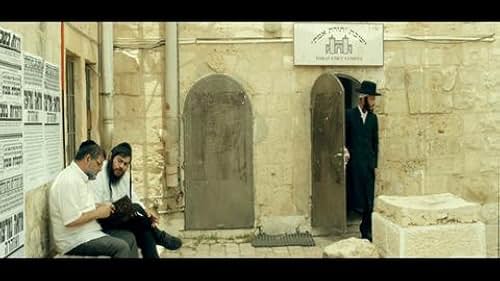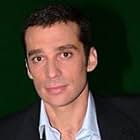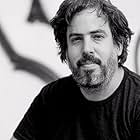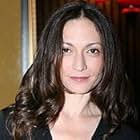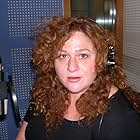An old criticism of Israeli movies is that because of the nature of Israeli society, too many filmmakers are less eager to present a protagonist we can easily identify with and follow than to present a gang of friends without a clear central focus. Avi Nesher's recent movies, although fascinating to watch, have sometimes lacked a very dominant protagonist and given the audience (by which I mean me) too many characters and too many plot threads to easily keep track of all at once. The Other Story has a lot of main characters but it doesn't suffer from that problem. Initially, it has a different problem. An engaged couple have embraced ultra-Orthodox Judaism and the parents of the bride-to-be want to torpedo the relationship and ultimately persuade the girl to leave the ultra-Orthodox environment. The movie's problem is that the audience (by which I mean me) can't root for either side in the conflict. They're both presented as offputtingly extreme. The movie comes to life when a new couple is introduced, a younger couple who are fighting over their child and over the woman's participation in a pagan cult. Here Nesher has done some interesting casting. He's perhaps Israel's foremost moviemaker today and he can get pretty much any actors he wants. The bride gone ultra-Orthodox, her parents, and her grandfather are all wonderful actors and well-known faces. But the younger couple are not very familiar actors, and that makes them a presence of a different kind; when you see them you don't say "ah, here's one of my favorite actors, this will be good." Their story (The Other Story? Maybe that's one meaning of the title) seems more concrete because the audience (by which I mean me) hasn't seen them outside it. And even as their story impacts the main story and everything affects everything, the movie proceeds without confusion. It takes a couple of strategically inserted speeches of exposition to keep the audience aware of all the background, but the audience doesn't lose track. And the question of who, if anyone, can intervene to save this dangerously unstable young couple, or at least to save their child, gives the plot an impetus that wasn't present in the conflict over living or not living the ultra-Orthodox life.
The movie is the acting debut of singer-songwriter Nathan Goshen. Nesher may have been charmed by the fact that Goshen himself is a musician who did at one point become ultra-Orthodox, like the character he plays, and was even able to contribute a song or two to the movie, but unfortunately his musical contribution is not very compelling. The incidental music, although a little heavy on the sentimental violins, is much better.
The various plot threads ultimately resolve themselves with a kind of Shakespearean simultaneity, and the audience (by which I mean me, and the critics I've read) goes away impressed that Avi Nesher has done it again. If not his best movie ever-- though it has been called that-- then the best-integrated movie of his career's second Israeli phase.

